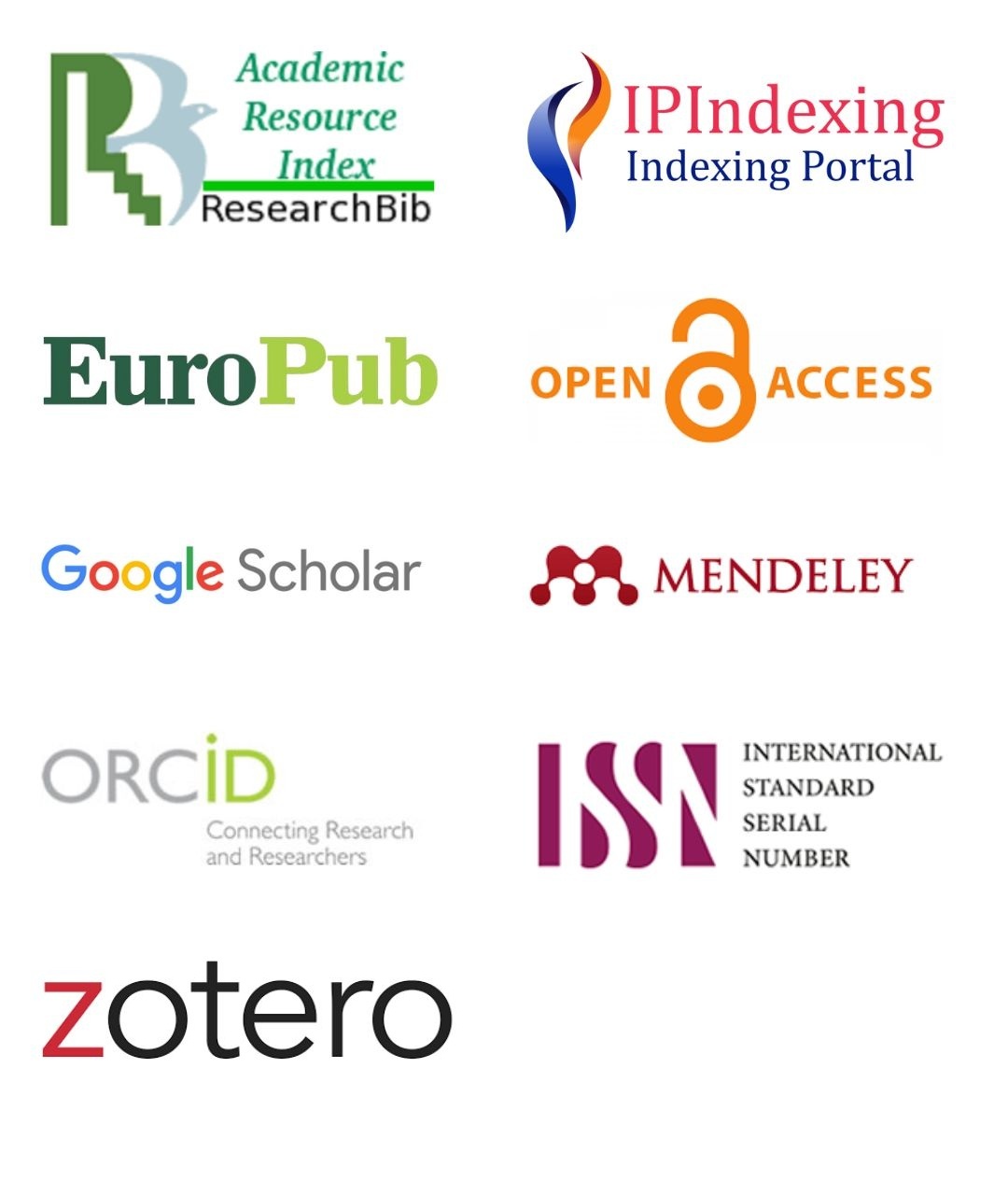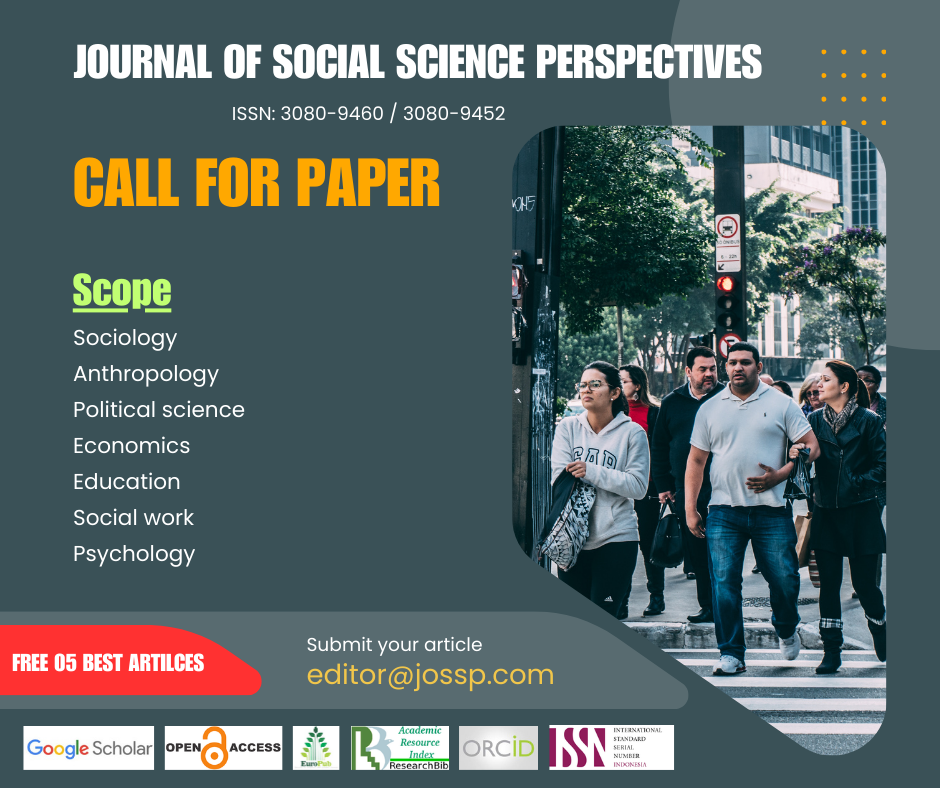Social Media Addiction and Anxiety Disorders in Teenagers
DOI:
https://doi.org/10.65761/jssp.2024.v1.i1.2Keywords:
Online Learning, Academic Performance, COVID-19, Student Engagement, Educational Inequality, Digital Divide, E-Learning, Rural Education, Urban Education, PakistanAbstract
Background: The COVID-19 pandemic has changed the global education system approximately, forcing a quick transfer from normal classroom education to online education.
Objective: This paper explores how online learning has been affected by the post-COVID-19 era with regards to students’ engagement, attainment and educational inequity.
Methods: The research was done as a comparative study between urban and rural settings and public and private institutions in Pakistan and uses a mixed method of employing survey data and qualitative feedback from secondary and higher education students.
Results: Students from urban areas or from private institutions better adapted to online teaching, experienced higher engagement and had more stable academic performance. On the other hand, students from rural areas and public schools had challenges such as poor internet and device ownership, poor institutional support, a lower academic outcome and lower levels of participation.
Conclusion: Due to digital inequality, the study emphasizes a widening educational gap which requires urgent policy reforms, technological infrastructure development and inclusive teaching strategies. Ultimately, although online education presents opportunities for innovation, it will only succeed with equitable access and support to all learners.
References
1. Adedoyin, O. B., & Soykan, E. (2023). Covid-19 pandemic and online learning: the challenges and opportunities. Interactive learning environments, 31(2), 863-875.
2. Tilak, J. B., & Kumar, A. G. (2022). Policy changes in global higher education: What lessons do we learn from the COVID-19 pandemic?. Higher education policy, 35(3), 610.
3. Yang, L. P., & Xin, T. (2022). Changing educational assessments in the post‐COVID‐19 era: From assessment of learning (AoL) to assessment as learning (AaL). Educational Measurement: Issues and Practice, 41(1), 54-60.
4. Sato, S. N., Condes Moreno, E., Rubio-Zarapuz, A., Dalamitros, A. A., Yañez-Sepulveda, R., Tornero-Aguilera, J. F., & Clemente-Suárez, V. J. (2023). Navigating the new normal: Adapting online and distance learning in the post-pandemic era. Education Sciences, 14(1), 19.
5. Svihus, C. L. (2024). Online teaching in higher education during the COVID-19 pandemic. Education and Information Technologies, 29(3), 3175-3193.
6. Stojan, J., Haas, M., Thammasitboon, S., Lander, L., Evans, S., Pawlik, C., ... & Daniel, M. (2022). Online learning developments in undergraduate medical education in response to the COVID-19 pandemic: A BEME systematic review: BEME Guide No. 69. Medical Teacher, 44(2), 109-129.
7. Tilak, J. B., & Kumar, A. G. (2022). Policy changes in global higher education: What lessons do we learn from the COVID-19 pandemic?. Higher education policy, 35(3), 610.
8. Jarvis, A., & Mishra, P. K. (2024). Leadership for learning: Lessons from the great lockdown. International Journal of Leadership in Education, 27(2), 316-331.
9. Matsieli, M., & Mutula, S. (2024). COVID-19 and digital transformation in higher Education Institutions: Towards inclusive and equitable access to quality education. Education Sciences, 14(8), 819.
10. Tulaskar, R., & Turunen, M. (2022). What students want? Experiences, challenges, and engagement during Emergency Remote Learning amidst COVID-19 crisis. Education and information technologies, 27(1), 551-587.
11. Bergdahl, N. (2022). Engagement and disengagement in online learning. Computers & Education, 188, 104561.
12. Alam, A., & Mohanty, A. (2022, December). Facial analytics or virtual avatars: competencies and design considerations for student-teacher interaction in AI-powered online education for effective classroom engagement. In International Conference on Communication, Networks and Computing (pp. 252-265). Cham: Springer Nature Switzerland.
13. Lasekan, O. A., Pachava, V., Godoy Pena, M. T., Golla, S. K., & Raje, M. S. (2024). Investigating factors influencing students’ engagement in sustainable online education. Sustainability, 16(2), 689.
14. Tandiono, R. (2024). Gamifying online learning: An evaluation of Kahoot’s effectiveness in promoting student engagement. Education and Information Technologies, 1-18.
15. Eduljee, N. B., Murphy, L., Emigh-Guy, M., & Croteau, K. (2024). Student perceptions about HyFlex/Hybrid delivery of courses during the COVID-19 pandemic. College Teaching, 72(4), 346-357.
16. Chen, J., Hughes, S., & Ranade, N. (2023). Reimagining student-centered learning: Accessible and inclusive syllabus design during and after the COVID-19 pandemic. Computers and Composition, 67, 102751.
17. Golden, A. R., Srisarajivakul, E. N., Hasselle, A. J., Pfund, R. A., & Knox, J. (2023). What was a gap is now a chasm: Remote schooling, the digital divide, and educational inequities resulting from the COVID-19 pandemic. Current Opinion in Psychology, 52, 101632.
18. Mathrani, A., Umer, R., Sarvesh, T., & Adhikari, J. (2023). Rural–urban, gender, and digital divides during the COVID-19 lockdown: a multi-layered study. Societies, 13(5), 122.
19. Robertson, S., Nguyen, T., & Salehi, N. (2022). Not another school resource map: Meeting underserved families' information needs requires trusting relationships and personalized care. Proceedings of the ACM on Human-Computer Interaction, 6(CSCW2), 1-23.
Downloads
Published
Issue
Section
License
Copyright (c) 2024 Journal of Social Science Perspectives

This work is licensed under a Creative Commons Attribution 4.0 International License.







